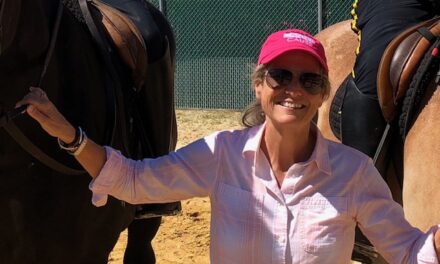by Jane Thery, MHC Farm Stewardship Committee Chair (first printed in the April 2021 Equiery)
Are horses good for the environment? With good management practices, horse farms can be champions for a clean environment.
There are now more horses in the United States than ever in history. In Maryland there are more horses per square mile than in any other state in the country. About one quarter of Maryland’s agricultural land is in horse farms.
With increasing interest in environmental action and a strong commitment to protecting the health of the Chesapeake Bay, there is an ongoing discussion of how our horse industry does and could do more to contribute to a “greener” world.
Horse farms have some great environmental features. Unlike cows, sheep and goats, horses are not ruminants so do not produce the powerful greenhouse gas methane. Horses are grazing animals and thrive on healthy pastures. The grasses of a well-managed pasture filter water, fix carbon in the soil, provide open space and wildlife habitat.
Woodlots on horse farms fix carbon and support the bird population.
Horse manure that is composted and used as a soil amendment is a natural source of locally-produced nutrients.
Barn and arena roofs are ideal places for solar panels to generate renewable energy. Barns with natural light and natural ventilation are good for horses and reduce energy use.
Trail riders connect to the natural world and promote the protection of and access to public lands.
The larger horse farms with plenty of pasture are great for the environment. Smaller farms are a plus if the pastures are not overstocked and get regular mowing, overseeding, dragging and fertilizing as needed. Soil samples are a great guide to targeting needed nutrients.
Keeping horses near population centers benefits the general public by enhancing the visible landscape and preserving open space, but it can be challenging as open land is scarce and expensive. Extra care and investment are needed to avoid overstocking fields and paddocks, managing manure and controlling run-off from barns, arenas, parking lots and riding rings. There are three strong reasons for making this investment.
First and foremost is the health of the horses. Sufficient space to move around supports the horses’ circulatory and digestive systems that are designed for regular movement. Elimination of mud prevents thrush and scratches. Proper manure management reduces the parasite and fly population. Fresh air reduces the transfer of pathogens and allergens. Well-drained and springy riding surfaces protect tendons and ligaments.
Second, horse owners, stable clients and especially the younger generation are increasingly serious about the environmental impact of their activities. How “green” are equestrian sports, and all sports activities, is now part of the discussion for managing practice and competition venues. Putting sound environmental practices in place on a horse farm and celebrating this achievement is good for business and a positive image for people in the horse community.
Third, good relations with the horse farm neighbors is essential for riding establishments to remain accessible to recreational and competitive riders in cities and towns. Proper manure management, including proper storage and hauling off, can avoid complaints of leaking piles and flies. Water control is important to minimize erosion and run-off onto others’ property. Of course, quality fencing and a neat appearance is welcome in any community.
Yes, horses can be champions of a clean, green environment. Horse farms can help fix carbon, clean water and provide wildlife habitat. Horses connect us to the natural world and provide outdoor sport and recreation. And they are beautiful creatures. A well-managed horse farm, with rolling green pastures and grazing horses, is a wonderful sight for horse lovers and passersby alike.
 About the Author: Jane Thery founded the Maryland Horse Council Farm Stewardship Committee in 2011 to promote environmentally-sound practices for horse health and the natural world. During these difficult pandemic days where meetings are either virtual or not at all, the Maryland Horse Council uses social media to send out weekly tips on farm stewardship to our horse community. Ms. Thery’s company, Green Horse Enterprises, supports the “greening” of horse farms and competition venues in the mid-Atlantic.
About the Author: Jane Thery founded the Maryland Horse Council Farm Stewardship Committee in 2011 to promote environmentally-sound practices for horse health and the natural world. During these difficult pandemic days where meetings are either virtual or not at all, the Maryland Horse Council uses social media to send out weekly tips on farm stewardship to our horse community. Ms. Thery’s company, Green Horse Enterprises, supports the “greening” of horse farms and competition venues in the mid-Atlantic.











